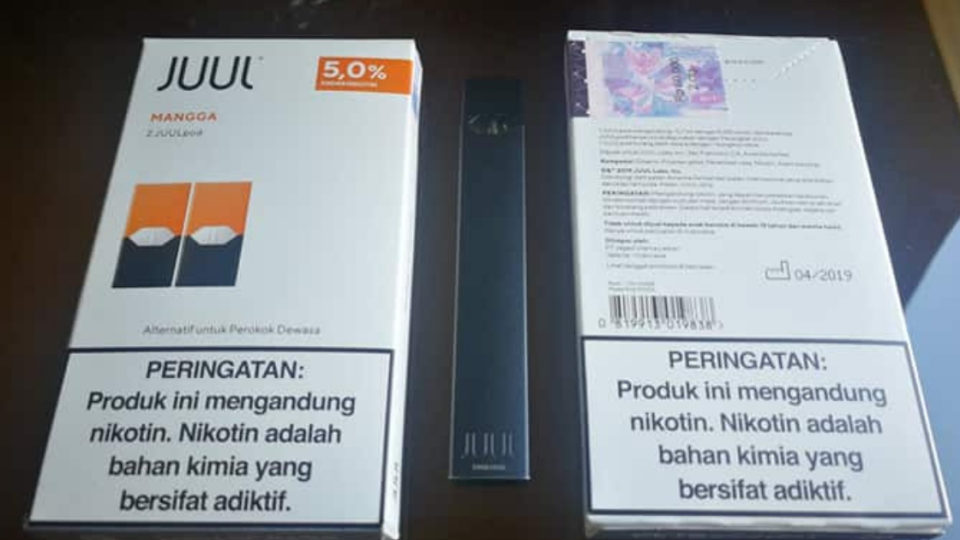The world’s fastest-growing electronic cigarette brand officially entered the world’s second-biggest market for cigarettes yesterday with the official launch of Juul in Indonesia.
The manufacturer of the sleek smoking alternative, US-based Juul Labs, Inc., began selling its devices and nicotine “pods” in the archipelago nation — in which tobacco smokers make up 35% of the country’s 264 million residents (making it second only to China in terms of individual cigarettes sold) — earlier this month but held a press conference to announce their official launch yesterday at the Four Seasons Hotel in Jakarta.
To legally import their products into the country, JUUL Labs partnered with local company PT Erajaya Swasembada, a retailer of mobile devices for major brands including Apple, Xiaomi and Huawei.
James Monsees, the founder and chief product officer of Juul Labs, said in a press release: “At JUUL Labs, our global mission is to improve the lives of the world’s one billion adult smokers and we are showing signs of success in achieving our mission in the markets in which we operate. In the U.S., we are seeing that many smokers finding JUUL to be an alternative to combustible cigarettes. We hope that our product presence in Indonesia can provide an alternative for adult smokers,”
Juul launched its e-cigarette device and products in 2015 and have quickly grown to dominate the market in the United States, with a market share of 72% as of September 2018. In December, Tobacco giant Altria announced that it would invest $12.8 billion for a 35% stake in Juul, which values the e-cigarette company at $38 billion. The company has been expanding aggressively in Asia, with other recent launches in South Korea and the Philippines. There has been talk of its plans to enter the Indonesian market since late last year.
Along with its meteoric rise, the company has also seen a barrage of criticism about its products, particularly reports about the large number of American teenagers using Juuls and the company trying to market to them through methods such as offering sweet and fruity flavors like creme brulee and mango.
Although public health advocates tend to say that e-cigarette devices have yet to be proven safe with longitudinal research, some medical organizations already endorse them as a method of quitting traditional, and unquestionably dangerous, cigarettes.
Indonesia is infamous for its weak tobacco control regulations (it’s one of the few countries to have not ratified the World Health Organization’s Framework Convention on Tobacco Control), which has led to disturbingly high smoking rates, particularly among men and children, and over 200,000 deaths per year due to tobacco-related diseases.
According to Juul’s press release, Juul pods in Indonesia are being sold in two-pod packs, at two nicotine strengths (3% and 5%) and in four flavors (Virginia Tobacco, Mango, Mint, and Vanilla). Juul has already opened kiosks in Jakarta’s Pacific Place mall and Bali’s Beachwalk Shopping Centre. Their products will also be available in certain convenience stores including Alfamart and are already available on e-commerce sites such as Tokopedia, on which Juul devices are being sold for around IDR 450,000 (US$32) while 2-pod packs are being sold for around IDR 100,000.




